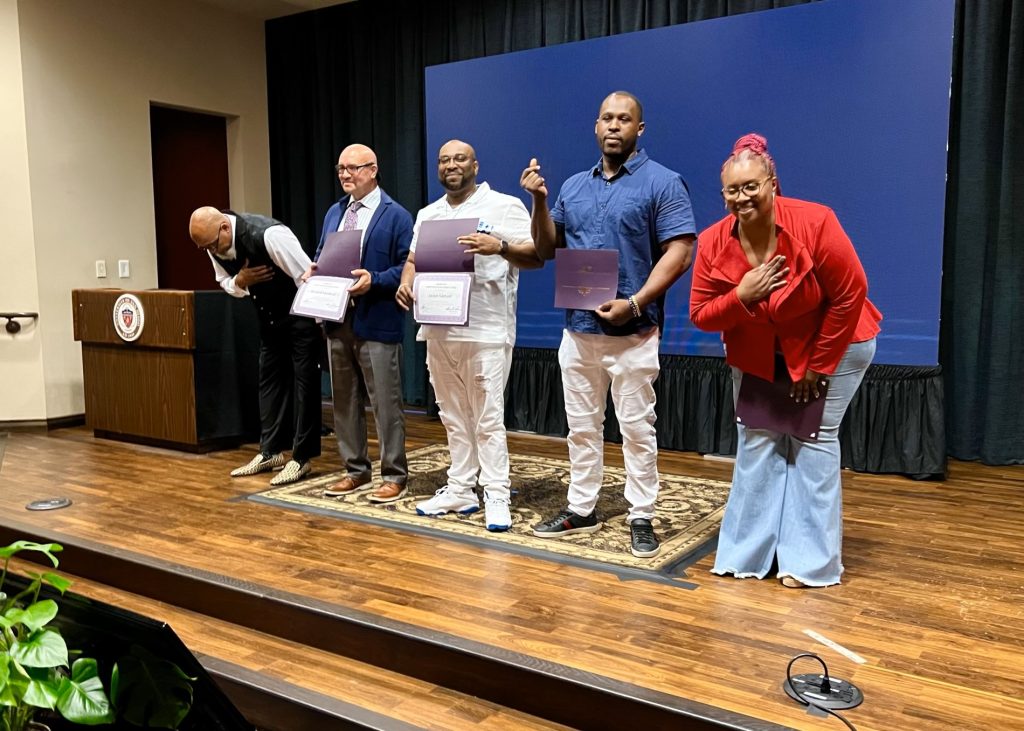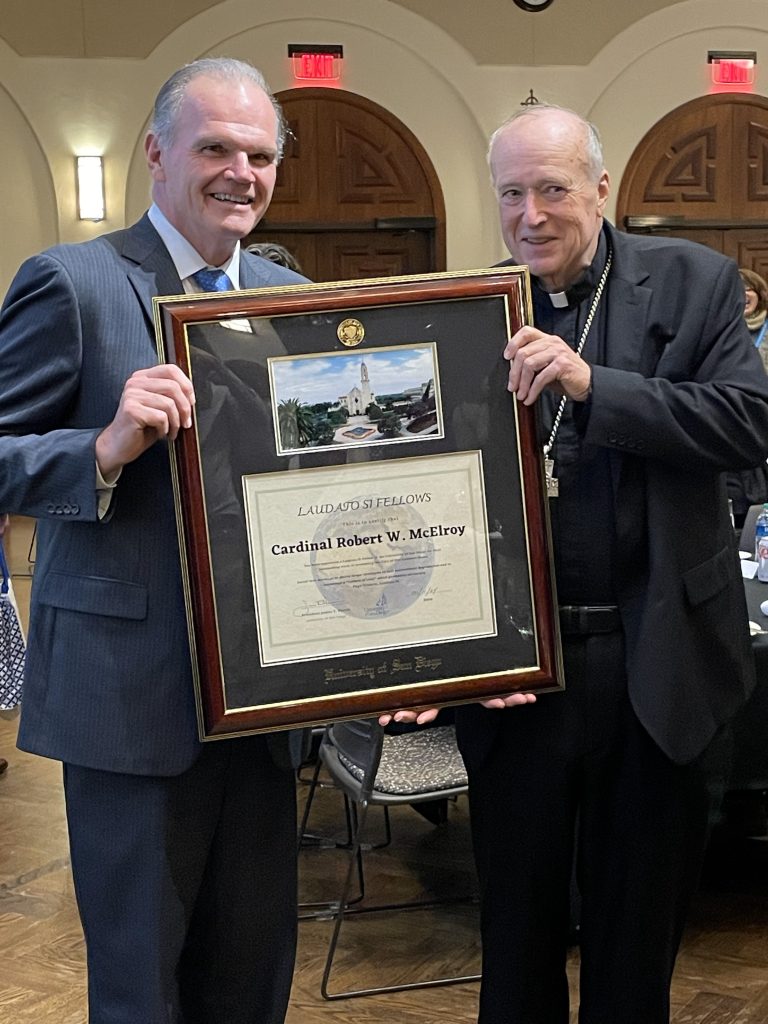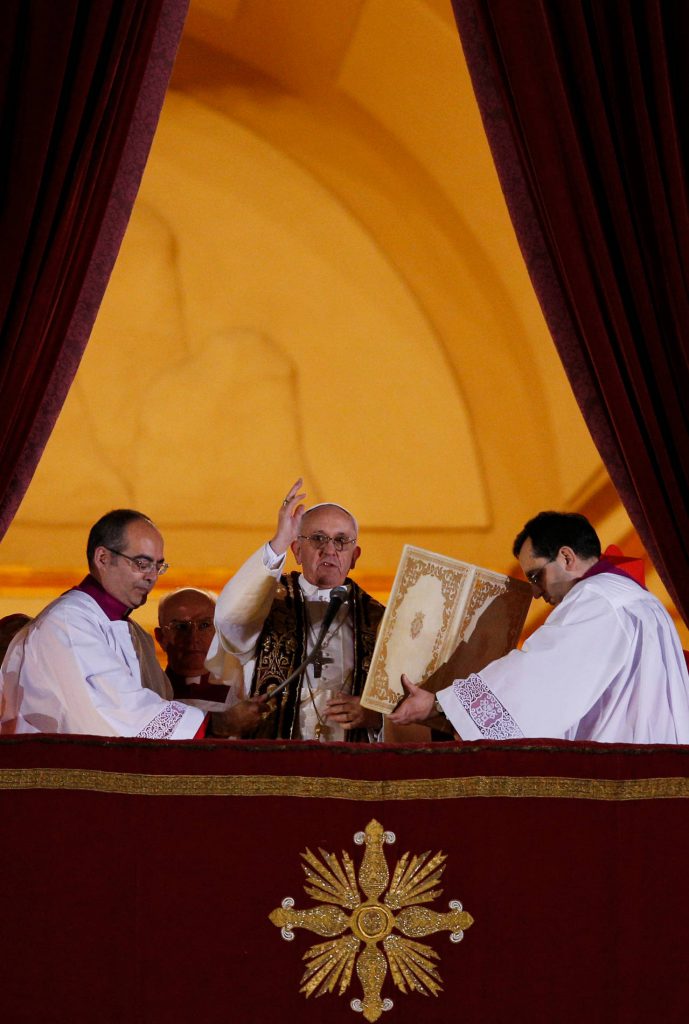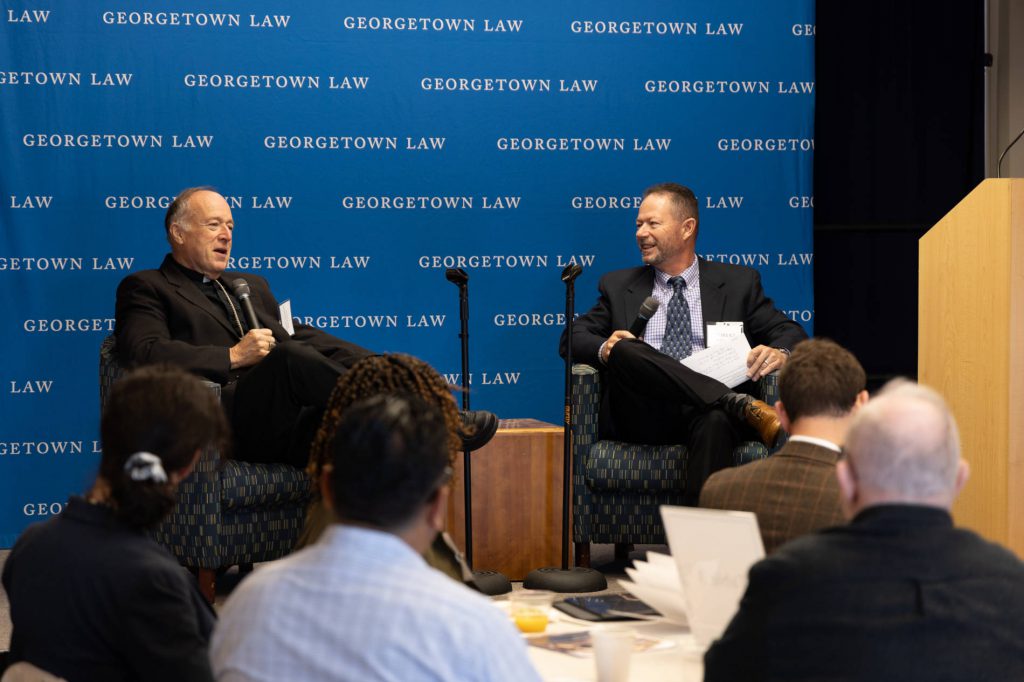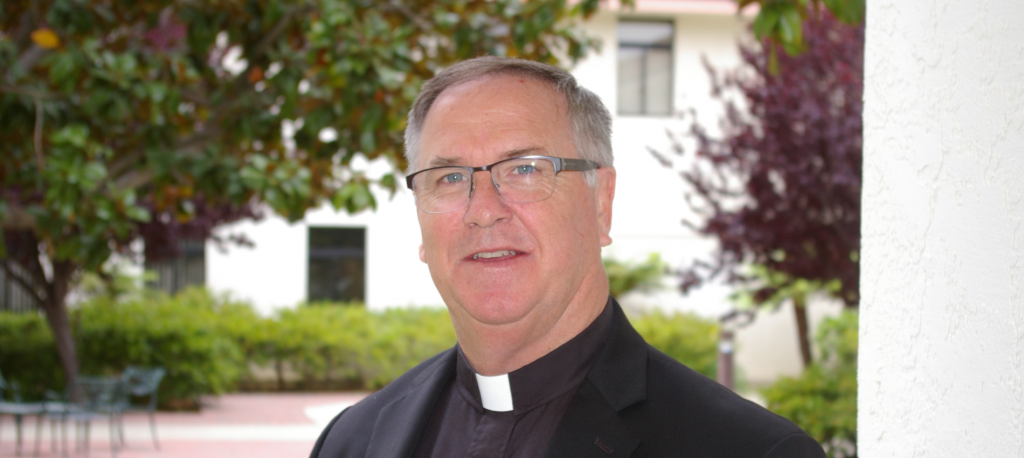As the 2020 election cycle begins, arguably one of the most consequential in the history of the nation, how should Catholics approach voting?
San Diego Bishop Robert McElroy answers that question by presenting a sweeping moral framework faithful voters can use to vote for individual candidates. He introduced it in a lecture titled “Conscience, Candidates and Discipleship in Voting” at the University of San Diego on Feb. 6.
The framework proposes how voters could choose candidates in a way that integrates the principles of Catholic social teaching that defend and advance justice, life and peace; recognizes the role that competence and character play in governing; and advocates for civility and unity within society.
Bishop McElroy recognized that many in the Church believe abortion is “the preeminent political imperative at stake in 2020.” However, he identified two other compelling issues that the faithful also see as being of great significance in voting.
First, the Bishop explored abortion, noting that more than 750,000 unborn children are killed in the United States every year. He said that at one time there was bipartisan support for developing policies that made abortion rare.
“Now, that commitment has been eviscerated in the Democratic Party in a capitulation to the notions of privacy that simply block out the human identity and rights of unborn children,” he said.
The Bishop said that the country is rapidly moving toward becoming a nation split in two: “Half the country moving toward laws safeguarding the unborn and the other half adopting ever more extreme laws allowing the killing of children on the verge of birth.”
At the same time, he said there is clear international scientific consensus that climate change caused by fossil fuels and other human activities poses “an existential threat to the very future of humanity and that air pollution resulting from fossil fuels is already a major cause of premature death on our planet.”
According to Veerabhadran Ramanathan, a renowned climate scientist at the Scripps Institute of Oceanography and an advisor to the Pope, air pollution from fossil fuel kills 3.6 million people around the world every year, 150,000 in the United States.
“Because the trajectory of danger unleashed by fossil fuels in increasing so rapidly, the next ten years are critical to staunching the threat to our planet,” the Bishop said.
The United States, under the Trump Administration, has become the leader in resisting efforts to fight climate change and in denying its existence, the Bishop said. “As a consequence, the survival of the planet, which is the prerequisite for all human life, is at risk.”
The Bishop acknowledged that both abortion and climate change are core life issues in Catholic teaching. However, he said there is no mandate in universal Catholic social teaching that gives priority to either one of them as uniquely advancing the common good.
He noted that the death toll from abortion is more immediate but the long-term death toll from unchecked climate change is larger “and threatens the very future of humanity.”
And he said that the designation of either of these issues as the preeminent question in Catholic social teaching “will inevitably be hijacked by partisan forces to propose that Catholics have an overriding duty to vote for candidates that espouse their position.”
Bishop McElroy identified a third compelling issue voters face in this election cycle: the culture of exclusion that has grown dramatically in the last three years.
“Racial injustice is on the rise, buttressed by a new language and symbolism that seek to advance the evil of white nationalism and create structures of racial prejudice for a new generation,” he said. “Immigrants and refugees, who have been at the core of America’s history as a source of vitality and richness, are portrayed as a cause of fear and suspicion in our society rather than solidarity.”
“On virtually every question of human life and dignity, the growing culture of exclusion in the nation reinforces and propels cleavages that are highly destructive to all of the goals that lie in the center of Catholic social teaching,” he said.
For this reason, many faith-filled Catholics believe that the most compelling issue that arises from Catholic social teaching is for voters to “repudiate radically this culture of exclusion before it spreads further.”
The Bishop noted, however, that voting requires voters to choose a candidate for public office not to choose an issue. That’s why he urged Catholic voters also to consider a candidate’s competence and character.
“It does little good to elect a saint who echoes Catholic social teaching on every issue if that candidate does not have the competence to carry out his or her duties effectively, and thereby enhance the common good.”
Character is another central element that must be considered, the Bishop said.
“Today, leaders in government embrace corrosive tactics and language, fostering division rather than unity,” he said. “The notion of truth itself has lost its footing in our public debate. Principles are merely justifications for partisan actions, to be abandoned when those principles no longer favor a partisan advantage.”
The Bishop asserted that voters should consider whether a given candidate would promote bridge-building and healing for the nation.
But how to integrate those elements of social Catholic teaching and personal qualifications in choosing a candidate?
He proposed voters use the virtue of prudence in their deliberations, asserting that “there cannot be faith-filled Catholic voting without this virtue exercised within the sanctity of the well-formed conscience.”
In his encyclical “Evangelii Gaudium,” (Joy of the Gospel), Pope Francis proposes that our political lives must be seen as an essential element of our personal call to holiness, the Bishop said.
“The Pope proposes that we can only fulfill our vocation as faithful citizens if we come to see in the very toxicity of our political culture a call for deeper conversion to Jesus Christ. It is not enough for us to ignore the corrosive elements of political life in the U.S., nor even navigate our role as citizens and voters without succumbing to the tribalism that bisects our society.
“We are called in our lives as citizens and believers to be missionaries of dialogue and civility in a moment that values neither. And this requires deep spiritual reflection, courage and judgement. It demands Christ-like dedication to seeking the truth no matter where it may lie, and defining our politics and voting in the light of the Gospel.”




